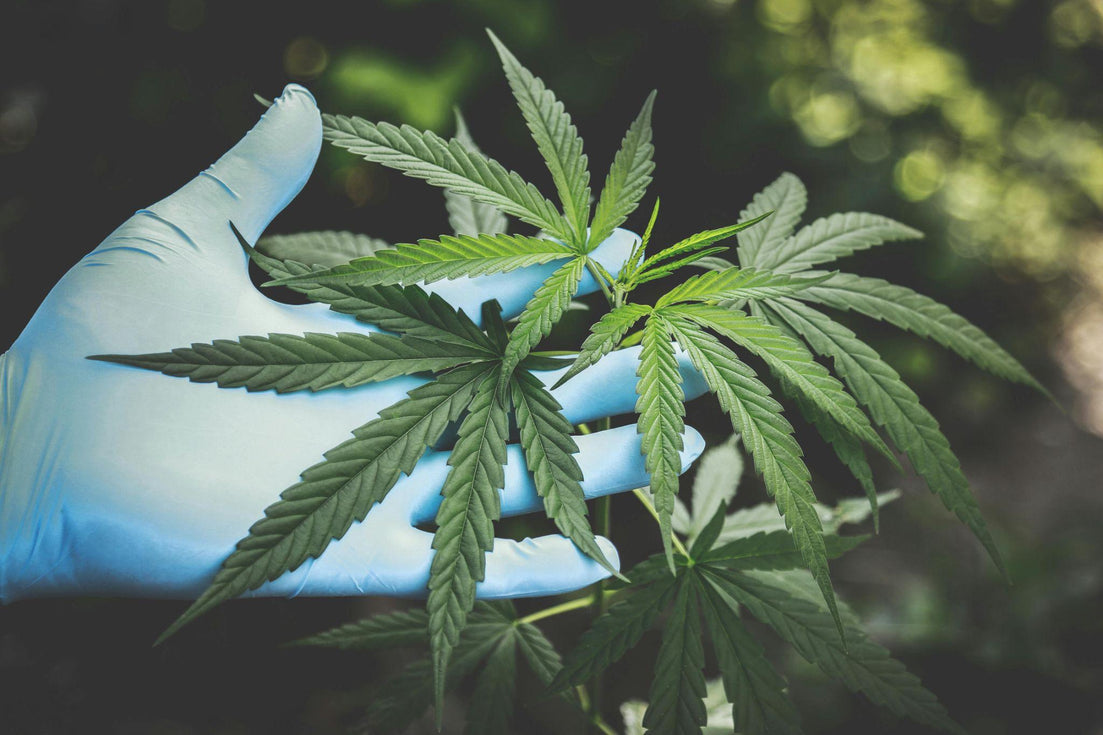Your cart is currently empty.

Cannabis is a highly popular recreational drug that often credits its popularly because the notion that it's not as dangerous as other drugs, including legal drugs such as nicotine and alcohol. Cannabis can be consumed in the many ways such as with a bongs, pipe, vaporizer or with high quality rolling papers. Although it is true that cannabis is relatively not as dangerous as other drugs, there are still short term and long term effects cannabis users are said to experience. While some of these effects may be minor, others may be more serious and should be made more aware.
Recent studies have shown that cannabis can have long term effects on the brain
Surprising new research has shown that cannabis can have long-term effects on the brain. The study, which was conducted on rats, found that exposure to THC - the main psychoactive compound in cannabis - caused changes in the brain that persisted for months after the rats were no longer exposed to the drug. While it's still not clear whether these changes are permanent, they could potentially lead to problems with memory and learning. Furthermore, the study highlights the potential dangers of cannabis use, especially for young people whose brains are still developing. This new research adds to the growing body of evidence that suggests that cannabis is not as harmless as many people believe.
The study found that cannabis use can cause changes in the brain's white matter
A new study has found that cannabis use can cause changes in the brain's white matter. White matter is essential for transmitting signals between different regions of the brain, and previous research has shown that it is particularly vulnerable to the effects of cannabis. The new study looked at how cannabis use affects white matter in adults, and found that it can cause changes in the structure of the brain. These changes can lead to problems with memory, attention, and executive function. The study's authors say that the findings highlight the need for more research into the long-term effects of cannabis use on the brain.
These changes can lead to problems with cognitive function and memory
The human brain is a complex and delicate organ, and even small changes can lead to significant problems. For example, research has shown that even a slight decrease in blood flow to the brain can lead to problems with cognitive function and memory. These changes can be caused by a number of factors, including dehydration, stress, and sleep deprivation. In addition, certain medical conditions and medications can also lead to cognitive impairment. As a result, it is important to be aware of the potential causes of cognitive decline and to take steps to protect the brain. For example, staying hydrated, managing stress levels, and getting enough sleep are all important for maintaining cognitive function. In addition, regular exercise has been shown to improve brain health and protect against cognitive decline. By taking these steps, you can help to keep your mind sharp and reduce your risk of developing memory problems.
The study also found that cannabis use was linked to a higher risk of developing mental health issues
The study found that cannabis use was linked to a higher risk of developing mental health issues. The study did not find a cause-and-effect relationship, but it did find an association between the two. Cannabis use has been linked to an increased risk of anxiety, depression, and psychosis. The study found that the risk was highest for those who started using cannabis at a young age and for those who used high-potency cannabis. There is some evidence that CBD may help to reduce the risk of psychosis, but more research is needed. Cannabis use is also linked to an increased risk of road accidents and impaired cognitive function.
Cannabis users should be aware of these risks and take steps to protect their mental health
Cannabis is a popular drug, used by people of all ages for its recreational and medicinal properties. However, it is also well-known that cannabis can have a profound effect on mental health. Users may experience paranoia, anxiety, and depression, and in some cases, these effects can be long-lasting. Cannabis users should be aware of these risks and take steps to protect their mental health, as well as their physical health by smoking with rolling papers. For example, they should avoid using the drug if they are pregnant or breastfeeding, as it can lead to developmental problems in infants. They should also avoid using cannabis if they have a history of mental illness, as it can trigger or worsen existing conditions. Finally, users should be aware that smoking cannabis can damage the lungs and lead to respiratory problems. By understanding the risks associated with cannabis use, users can take steps to protect their mental and physical health.
If you are using cannabis and experiencing any negative side effects, please seek help from a qualified professional
Cannabis is a powerful and versatile plant that has been used for centuries for medicinal purposes. However, it is important to remember that cannabis is not without its risks. While the vast majority of people who use cannabis will not experience any negative side effects, some people may experience anxiety, paranoia, or other issues. If you are using cannabis and experiencing any negative side effects, it is important to seek help from a qualified professional. A qualified professional can help you to understand the risks associated with cannabis use and develop a plan to minimize those risks. With the help of a qualified professional, you can continue to enjoy the benefits of cannabis while minimizing the potential for negative side effects.
To summarize, cannabis is a psychoactive drug that can have long-term effects on the brain. A recent study found that cannabis use can cause changes in the brain's white matter, which can lead to problems with cognitive function and memory. The study also found that cannabis use was linked to a higher risk of developing mental health issues. Cannabis users should be aware of these risks and take steps to protect their mental health. If you are using cannabis and experiencing any negative side effects, please seek help from a qualified professional.



